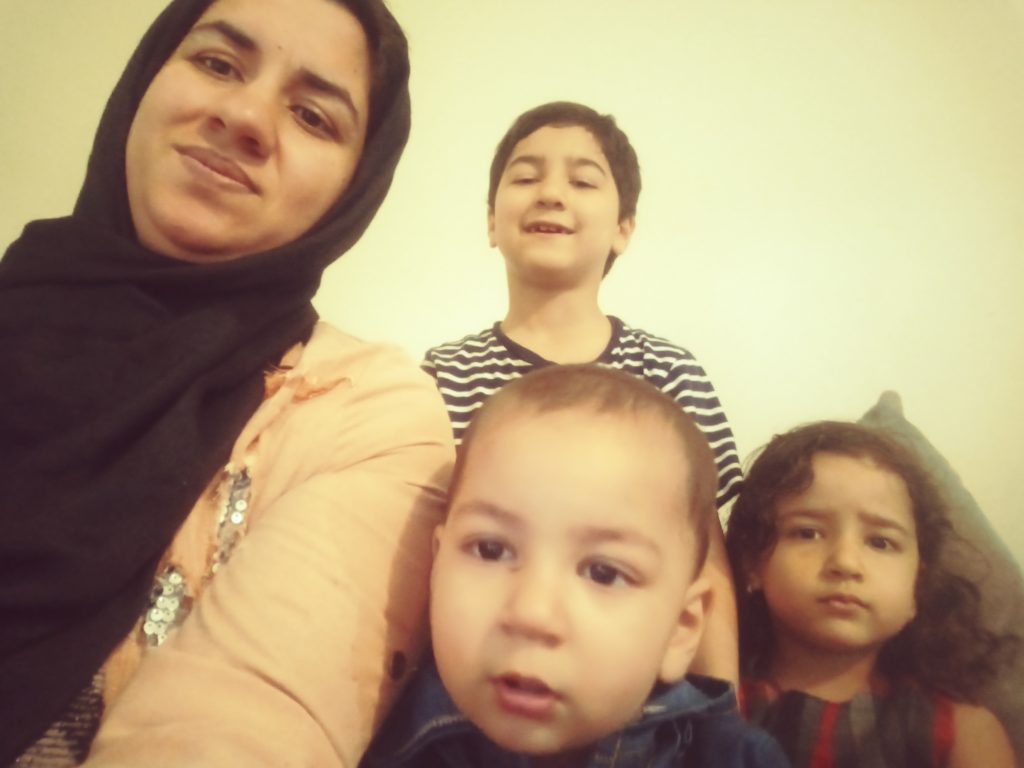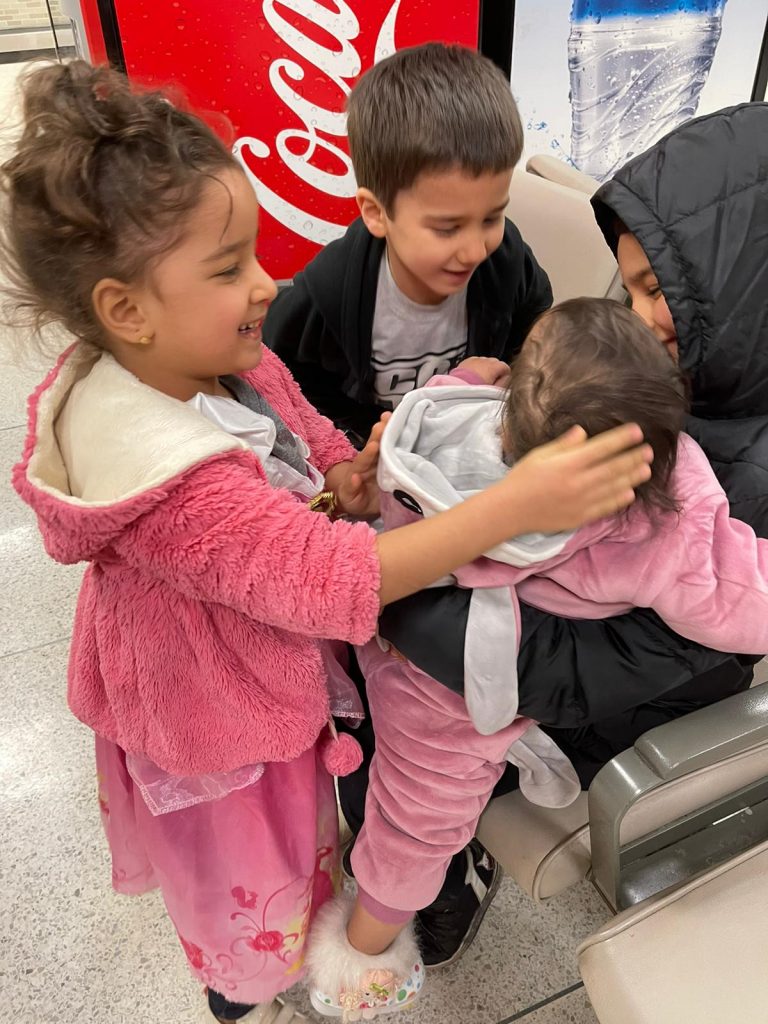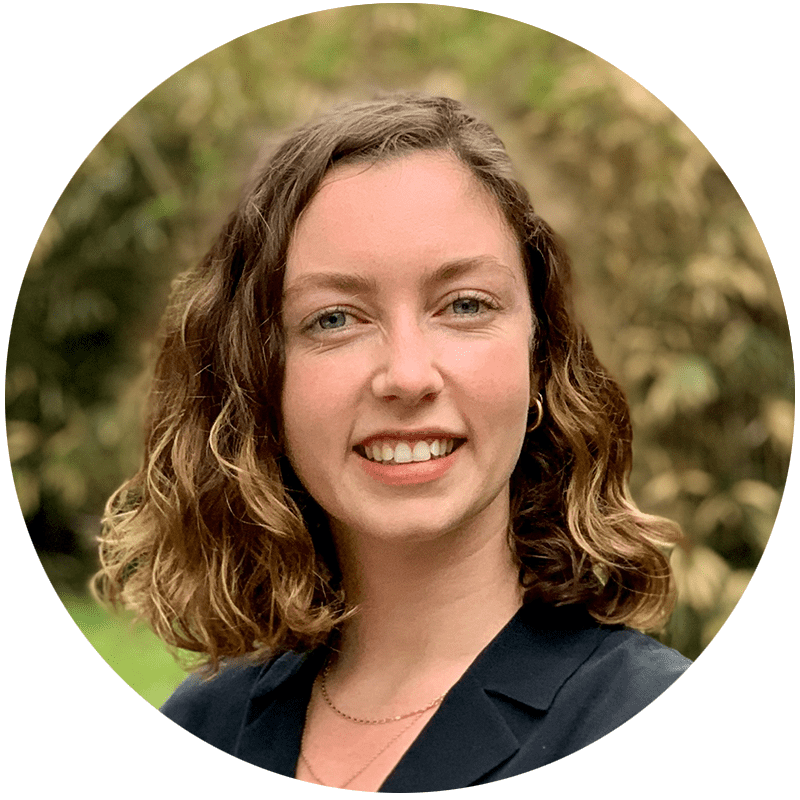Posts Tagged ‘World Relief Memphis’
Here’s how Memphis has Helped Ukraine in the Past Year
MEMPHIS, Tenn. — One year ago from Saturday, the world woke to news that Russian missiles were hitting Ukraine’s capital city. In many ways, the world changed.
It soon became obvious Russia spectacularly underestimated Ukraine’s will to resist. For over a year now, Ukrainians have been fighting. Over the past year, families have lost loved ones as well as left everything behind to seek refuge outside of their home country.
Here in Memphis, local organizations like World Relief Memphis; 901 Stands with Ukraine and Grace Even have been doing what they can in order to provide aid to Ukrainians.
World Relief Memphis — in partnership with 901 Stands with Ukraine — have recently helped from 40 to 50 Ukrainian refugees in Memphis with the goal of finding work as well as housing for these families.
A Mother’s Love
This Mother’s Day, we want to wish all of our mothers, in all stages of life, a Happy Mother’s Day. We know that motherhood is a blessing, but it’s not without its trials. For many of our families, mothers have made immense sacrifices for their children. Today, we honor and thank you for all that you do.
This story originally appeared on the World Relief Memphis blog.
Seeta is a mother of four. When her family left Afghanistan, however, only three children boarded the plane with her and her husband, Noor.
Aysha, their youngest daughter at less than a year old, was forced to stay behind as her family left in search of safety in America. Having served the U.S. military as a journalist, Noor and his family could no longer stay in Afghanistan for fear of retaliation from the Taliban.
“I was working with the U.S. military as a journalist, and she was working with USAID (United State Agency for International Development) and United Nations, so it was very dangerous for us because the Taliban did not accept people who worked for foreigners,” Noor explained. “We were not safe in our country, so in order to seek safety we came here.”
Consequently, Noor and his family were offered Special Immigrant Visas (SIVs) from the U.S. government as a way to not only thank them but also to protect them.
But at the time the visa paperwork was issued, Aysha had not been born. As a result, her paperwork was filed separately, and Noor and Seeta were forced to leave her behind with other family members.
“It was a hard time because we didn’t have any choice,” said Noor, who recently found work with Amazon. “We thought if we lost that chance, we wouldn’t find it again. Because of that, we left our baby there. We came here. If we had cancelled our visas, maybe we wouldn’t have been able to get [them] back.”
Seeta and her husband arrived in Memphis in October 2020 with their eight-, six- and five-year-old children. It wasn’t until two months after their arrival that they received news about Aysha’s visa. But, in order for her to come to the U.S., Seeta would have to risk going to Afghanistan and not being able to return to the U.S. because her green card had not arrived.

Determined to be reunited with her daughter, Seeta and her World Relief Good Neighbor Team began looking for a way to make it possible alongside World Relief Memphis staff. After speaking with the State Department, they discovered that her green card had been misplaced, but that she could go to Afghanistan with her current visa knowing that it was coming.
Yet, when she arrived in Afghanistan, she was greeted by a baby who didn’t recognize her. The months apart had created distance, but Seeta was patient.
“It was emotional, and she didn’t want to come with me for one day or night, like maybe she [had] forgotten me,” Seeta said. “Then she realized who I am, and now she’s not leaving me for one minute.”
Finally, Seeta brought her daughter home. Her family was together, and they could begin to rebuild their lives in safety.
Today, she works for Shelby County, helping connect others in her community with the resources they need in the wake of the COVID-19 pandemic. After advocating for women and children’s safety in Afghanistan for many years, Seeta now seeks to empower women in the workplace.

Likewise, Aysha is flourishing.
“She’s very happy with us now. When she came, she was sad and keeping calm,” Noor said. “But now, she’s come back better than ever and is very active.”
When asked if they had hopes and dreams for the future, Noor and Seeta immediately responded.
“For sure, that’s why we are here. We are here because of these. We try to do all our best for all our children.”

Bailey Clark serves as the Communications Coordinator for World Relief Memphis. With a background in journalism and advertising, she is passionate about storytelling and its power to make a difference.
All My Hope: A Refugee Story
Long Distance Love
On the morning of February 17th, Rafia woke up and prepared a feast for the arrival of her husband, Abdinasir. But when an unprecedented snowstorm hit the Mid-south, Abdinasir’s flight was canceled and he got stuck in Chicago. Rafia, however, was undeterred.
The next morning, she woke up and cooked another welcome-home meal for her long-awaited husband. But again, for the second time, his flight was canceled.
For five years, Rafia and Abdinasir had communicated only by telephone calls. The two met as refugees at a camp in Kenya after fleeing their home country of Ethiopia. When they were married in January 2015, they never imagined that the first years of their marriage would play out like this.
“I loved and married this person, and this person was leaving me,” Abdinasir said through a translator. “It was very hard on me to grasp the reality of it, but in everything, it’s God’s will, so I did not have any control.”
Rafia’s resettlement paperwork had been filed separately from Abdinasir’s before they were married. There was no time to change it between their wedding and her departure 11 months later, so when her visa was approved, she left for the United States, and Abdinasir was left behind.
Rather than spending the honeymoon period together, the couple found themselves in a long-distance relationship. Moreover, when Rafia arrived in the U.S., she discovered she was pregnant.
“Everything kept twirling in my head,” Abdinasir said. “My life was just one surprise after the other. All of the sudden she got there, and she was pregnant.”
A Baby on the Way
From a distance, Abdinasir watched as his wife carried his child and suffered through six months of morning sickness in a completely new country, alone. Her pain was so great that Rafia considered terminating the pregnancy. Thankfully, a new friend from her home country of Ethiopia stepped in to provide support, and Rafia was able to carry the baby to full-term. But her difficulties didn’t stop there.
Due to labor complications, her baby was delivered through a cesarean section.
When she was sent home from the hospital in Atlanta, she was unable to care for herself or the baby because of the strain it would place on her wound. Eventually, she was forced to return to the hospital due to an infection.
This time, another friend took her under his wing, giving her lodging and helping with her newborn when he could. His job as a truck driver, however, often took him away from home for weeks at a time, and Rafia struggled to care for herself and her baby in his absence.
“Even though I laugh about it, sometimes I don’t even want to remember it because it was a very painful experience,” Rafia said.
Meanwhile, Abdinasir was still in a refugee camp on the other side of the ocean. With no news of when his visa would be processed and approved, he could only watch his daughter grow up through a phone screen.
“Her leaving me behind, and me being alone, was hard enough,” he said. “The fact that she was here, pregnant, alone and going through all of that was just another heartache for me. I was not here physically, but I was just feeling all the pain.”
Hope on the Horizon
Slowly, Rafia regained her strength and was able to meet others within her community. Eventually, she moved to Memphis, and with the help of a friend, she contacted World Relief’s local office to start the process of bringing her husband home.
“Life was getting better afterwards, and I am grateful for everything. Even though once upon a time I thought this was just the end of me, that I was just going to rot and die alone,” Rafia said. “But once I got [to Memphis], I told them all my story. They were able to process the visa for Abdinasir, and now he’s here. In many, many, many ways, my survival was because of World Relief.”
In March 2020, four years after their wedding, Abdinasir and Rafia received the news that his visa was being processed. For the first time in a long time, the couple had hope.
“I heard a lot about World Relief, and the fact they would do everything in their power to reunite families,” Abdinasir said. “That gave me the biggest hope that they would do anything and everything to unite us.”
Each time Abdinasir called his family after that, his daughter would ask the same question: “Daddy, when are you coming?” And each time, the truth that he would soon be with them became a little more real. If Abdinasir could have had it his way, he would have grown wings and flown out at that moment.
Instead, he and Rafia drew strength from their faith and maintained hope in God’s plan for their lives, counting down the days to when Abdinasir would arrive and they could begin life as a family. After five years of waiting, a delayed flight in Chicago was nothing for the couple.
Finally Reunited
On the morning of Abdinasir’s arrival, Rafia eagerly awoke. But this time, she didn’t cook a welcome-home meal. Jokingly, she said Abdinasir could eat what was left over from the other two meals she made. Instead, she and her daughter waited patiently at the airport, giddy with excitement.
When Abdinasir finally landed in Memphis his first thought was who should he kiss first — the daughter he was meeting for the first time or the wife he had said goodbye to five years ago? Overwhelmed with emotion, he embraced his wife first then turned to hug his daughter for the very first time.
“It’s my turn now since she’s been through all this hardship all this time alone. I just really want to be the anchor for my family and be the man of the house for everything going forward,” Abdinasir said.
A month into his new life with his wife and daughter, Abdinasir is working hard to learn English and find a job. His prayer is that this is just the start and not the ending. He is filled with hope as he thinks of the future that lies ahead of his family — one that he had never thought possible when he was forced to leave his country so many years ago.
“Coming from all the horror stories and everything else, you come here and you’re a human. You have rights,” he said. “To me, I have left all the troubles and everything right there where I came from. Nothing but the best moving forward, and that’s all my hope.”
Give today and help us welcome and reunite more families like Rafia and Abdinasir. Together, we can build communities of love and welcome that we all feel proud to be a part of.

Bailey Clark serves as the Communications Coordinator for World Relief Memphis. With a background in journalism and advertising, she is passionate about storytelling and its power to make a difference.
Love Disrupts: Rodney’s Story
“We are enamored with a gospel that comforts us, but we are rarely drawn to a gospel that disrupts us.”
– Eugene Cho, Thou Shall Not Be a Jerk
Rodney is a husband and a father. He goes to church and home-schools his kids. He loves God and loves others, but when it came to immigration, Rodney felt it might be best if the U.S. stopped allowing more people to come here.
“[I would] see the big headlines saying that an illegal alien broke into someone’s house,” he said, “or [I’d] hear something about MS13 without context. You get to the point where you start to put all people into the same category.”
Rodney was comfortable with his views on immigrants and refugees, that is, until God disrupted his life.
It was a perfectly ordinary Sunday when David Frazier, founder of World Relief Memphis’ Connect English Language Center, spoke at First Evangelical Church in Memphis, Tennessee. Rodney’s son, James, was in attendance, and he listened as David spoke about God’s heart for immigrants. After the service, James returned home and told his dad about David’s message and how it was causing him to question his own views on immigration. Rodney was intrigued so he invited David to come speak to his Sunday school class the following week.
“David really pulled back [the curtain] and showed me the facts about who refugees are and the processes in place in terms of vetting that they have to go through,” Rodney said.
After Sunday school, David suggested that Rodney enroll in an orientation program at World Relief Memphis to learn more.
During one of the first classes, Rodney’s instructor passed out index cards to everyone and asked them to make a list of things they would bring with them if they had to leave their homes. After they made their lists, the instructor told everyone to cross one thing off their lists. After a few more rounds, everyone was left with just two or three things they could bring with them.
“[I realized] this is what these refugees have had to do,” Rodney said. “They’ve had to give up things in order to [find] a better life or escape danger where they were. It just made me think, what would I have to give up?
“[The exercise] opened my eyes up to the fact that the people that are here are not trying to…stay in their own groups,” he continued. “They are trying to learn English, trying to assimilate and trying to get jobs. These aren’t people coming just to get something, they’re coming to learn. They’re coming to contribute.”
After finishing the classes, Rodney felt compelled to volunteer. He signed up to serve on Wednesday nights at the Connect Language Center’s Café English, helping ESL students practice their English by simply having conversations with them. At Café English, Rodney connected with refugees and other immigrants and began to feel a palpable sense of shared humanity with them.
A few weeks later, World Relief’s Mobilization Director, Karen Spencer, asked him if he’d be interested in filling the need for a Roadrunner — a volunteer driver who transports refugee and immigrant clients to and from ESL classes and other appointments they have. Without hesitation, Rodney said yes and began driving World Relief’s 15-passenger van three days a week. According to Rodney, this was simply the next step God had asked him to take, and spending time with clients in the car allowed him to foster deeper connections with them.
“One of the first groups of ladies I [drove to ESL class] came close to my 29th wedding anniversary,” Rodney recalled. “So I asked them to teach me how to say ‘I love you’ in Swahili, which is nakupenda. It was a way to [connect] things from my life [with] theirs.”
After that, Rodney said he and the group of women would say “nakupenda” to each other each time he dropped them off, a sign that a beautiful friendship was forming.
Rodney also got to know the Mto brothers on his drives. They talked to each other about their marriages and hobbies, and as they grew more comfortable with each other, one of the brothers approached Rodney and asked if he would help him learn how to drive.
Rodney admits that he was hesitant at first.
“There was the human instinct [in me] that said maybe this is going too far,” he said.
But he had been asking God to make him open to new opportunities. When he remembered that prayer he thought, “God, I asked you to make me open, so, okay.’”
He picked up some books from the Connect Language Center that would help the Mto brothers study for their permit test and began studying with them. Eventually, Rodney invited the brothers over for dinner after their study sessions and the men became close friends with both Rodney and his son. One night, Rodney even took the brothers out for pizza and to drive go-karts so they could safely practice driving!
Recently, Rodney said that Patrick, one of the brothers, texted him saying, “Big! I’m ready to drive!”
“My nickname is Big Rod,” Rodney laughed, “but he can’t remember the ‘Rod’ so he just calls me Big.”
At World Relief, we often talk about the opportunity for mutual transformation. Because of his willingness to take a leap of faith, Rodney experienced a significant mindset shift and has been blessed tremendously by being a source of friendly welcome for so many refugees and immigrants in Memphis.
“The thing that has gotten me more than anything else,” Rodney said, “is that there are missionaries that are called by God and go to a certain country. I’m being a missionary here. I’ve met people from Columbia, Venezuela, Guinea, the Democratic Republic of the Congo. I’ve learned these people’s names. I’ve gotten to talk to them, find out about their families, what they like to cook, etc. It’s something that I’ve really enjoyed and it’s ever-expanding.
“It is not so much that you have the ‘skills’ when you come to this job,” he continued. “It’s that you open yourself up to God and say, ‘Take everything that I am, and use me for your glory in this position.’ So, it’s all about being open to God… Be open, and let God use you to be who he created you to be.”
Rodney’s story is a refreshing reminder of what God can do when we open ourselves up to his transformative, often disruptive love. May we all be a little more like Rodney and courageously let that love in.

Nathan Spencer is a former Communications Intern for World Relief Memphis. A recent graduate of the University of Memphis, Nathan continues to volunteer for World Relief as a copywriter.





